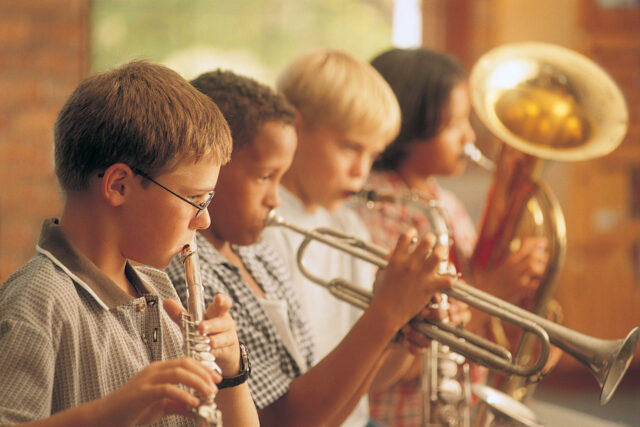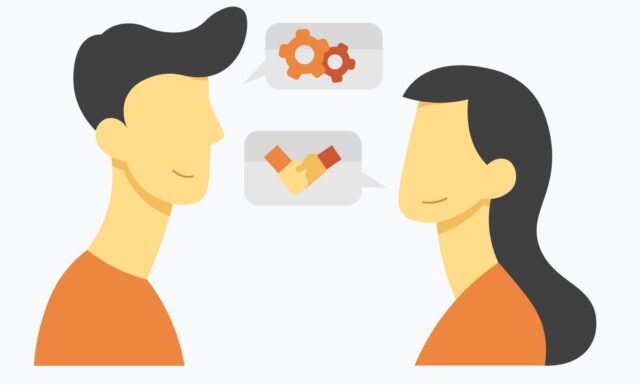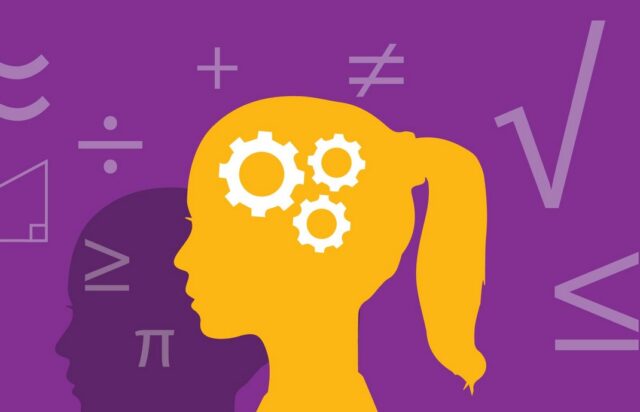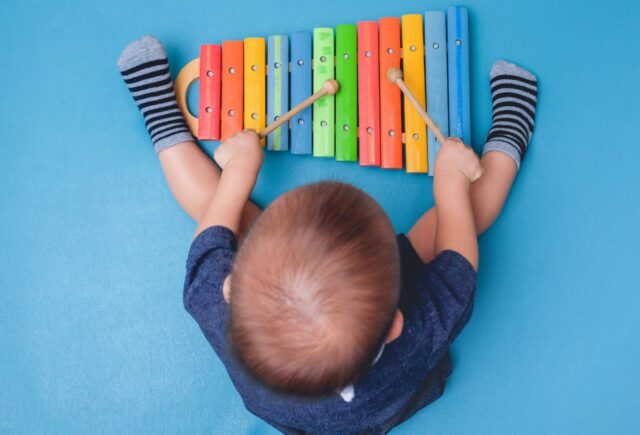
Have you ever watched your favorite musician in awe while performing on stage? Whether it’s drums, a guitar, a flute, or a violin, every person who plays an instrument invests time to master it. Learning to play an instrument makes you a well-rounded person by acquiring new skills and knowledge. This article discusses the different skills that you can learn from playing different musical instruments.

Why Should You Learn To Play A Musical Instrument?
Many people think that it is best to take up a musical instrument while young. But keep in mind that learning does not stop at a certain age; thus, you can still develop your musical skills even when you’re in your teens or beyond. Here are practical reasons why you should consider learning a musical instrument:
- Stress Relief: Music is good for the soul, and there’s nothing better than listening to music that you create yourself. Playing an instrument allows you to take a break and focus on music and nothing else, according to experts at Guitar Junky.
- Increased Confidence: You learn to face an audience every time you perform to play a musical instrument, which helps in overcoming stage anxiety. A boost in self-confidence does wonders for different aspects of your life.
- Sense Of Responsibility: Musicians know that when they do not take care of their instruments, it won’t perform as it’s supposed to. Proper cleaning and storage are essential to keep these items in tip-top condition, which instils a sense of responsibility and maturity in the user.
- Earn Extra Cash: Who doesn’t want to earn money while doing what they love? If you play well and love to perform for other people, you can get bookings for social events or gatherings for additional money in your pocket.
Aside from the tangible benefits of becoming a musician, you also learn different skills that you can use or apply in various aspects of your life.
What Skills Can You Learn When You Play Different Musical Instruments?
Some instruments are difficult to learn than others, so it’s crucial to find the one that suits you best with the help of websites like GrooveboxStudios. There is no such thing as a natural-born musician—some people may have higher musical aptitude than others, but instruments need to be learned from scratch. The good news is that every person who attempts to learn a musical instrument and continues to play throughout life gains various skills and also improves existing abilities.
1. Concentration Skills

Honing your musical abilities, no matter what type of instrument you’re playing requires focus. You will learn to concentrate better when studying how to play a musical instrument by understanding how to avoid distractions and non-essential activities. By training your brain to focus intently on what you are doing, you can perform other activities better, whether at school, work, or extracurricular tasks.
2. Interpersonal Skills

Learning to play an instrument is essential for developing interpersonal skills, including verbal and non-verbal communication, listening skills, as well as empathy and teamwork. Interpersonal skills can be considered as a type of social skill that determines your ability to interact and collaborate with other people effectively. Practice playing with others teaches you awareness, conflict management, respect, and understanding.
3. Mathematical Reasoning

One of the things that music will teach you is mathematics or mathematical reasoning. Sounds surprising, but it’s true. Music helps students become comfortable with numbers, and vice versa. Not many people know that understanding music requires a good sense of numbers—fractions, to be exact. To study a musical instrument, you must be able to understand symbols, chords, and notes.
Some research suggests that studying music helps improve mathematical skills, which, in turn, improve an individual’s analytical and logical thinking. Becoming a skilled instrument player is not easy, and you may encounter challenges throughout your learning journey. Since learning musical instruments encourage analytical reasoning, you become better at problem-solving in every aspect of your life. It also teaches patience and perseverance—some of the traits required to become a creative yet logical problem solver.
4. Motor Skills

Taking up lessons to play an instrument does not only teach or improve psychological abilities, but there are also physical benefits you can take advantage of. Whether you’re taking up drums, piano, guitar, or woodwind instruments, you will develop motor skills that you also use regularly. For example, playing the drums is a full-body workout in the sense that it helps build gross motor skills like arm, lower body, and core strength. Piano players, on the other hand, should possess both gross and fine motor skills (finger dexterity). It also helps teach or improve posture and core strength.
Many musical instruments also teach and improve motor coordination skills, which involve using the arms and legs at the same time in a coordinated way. For some instruments, you will need excellent hand-eye coordination. Timing is crucial in playing a musical instrument, as well as good coordination and balance.
5. Multi-Tasking Skills

Multi-tasking may be the exact opposite of concentration skills, but it doesn’t mean it’s less important. The ability to multi-task can be beneficial not just for improving your musical abilities, but also in performing school- or work-related activities, and everyday life. When you can switch tasks smoothly, it means you can shift your attention to two or more different activities with ease. Learning to play an instrument at a very young age teaches your brain to handle various tasks at the same time in an efficient and effective way.
6. Sensory Skills

Another benefit of learning to play a musical instrument is sensory skill development. Musical studies not only help develop motor skills, but it also supports visual and auditory integration. This ability is particularly important for growing children, especially those with learning difficulties. Sensory development also paves the way for improved motor skills and enhanced social skills.
Takeaway
Learning to play a musical instrument well earns you more than just bragging rights. Musical talent is often a result of hard work and aptitude. The benefit of learning a new musical instrument is you can develop your musical skills while gaining non-musical competencies. The skills you gain from playing different musical instruments will help you adapt to changes in life and solve problems along the way.









